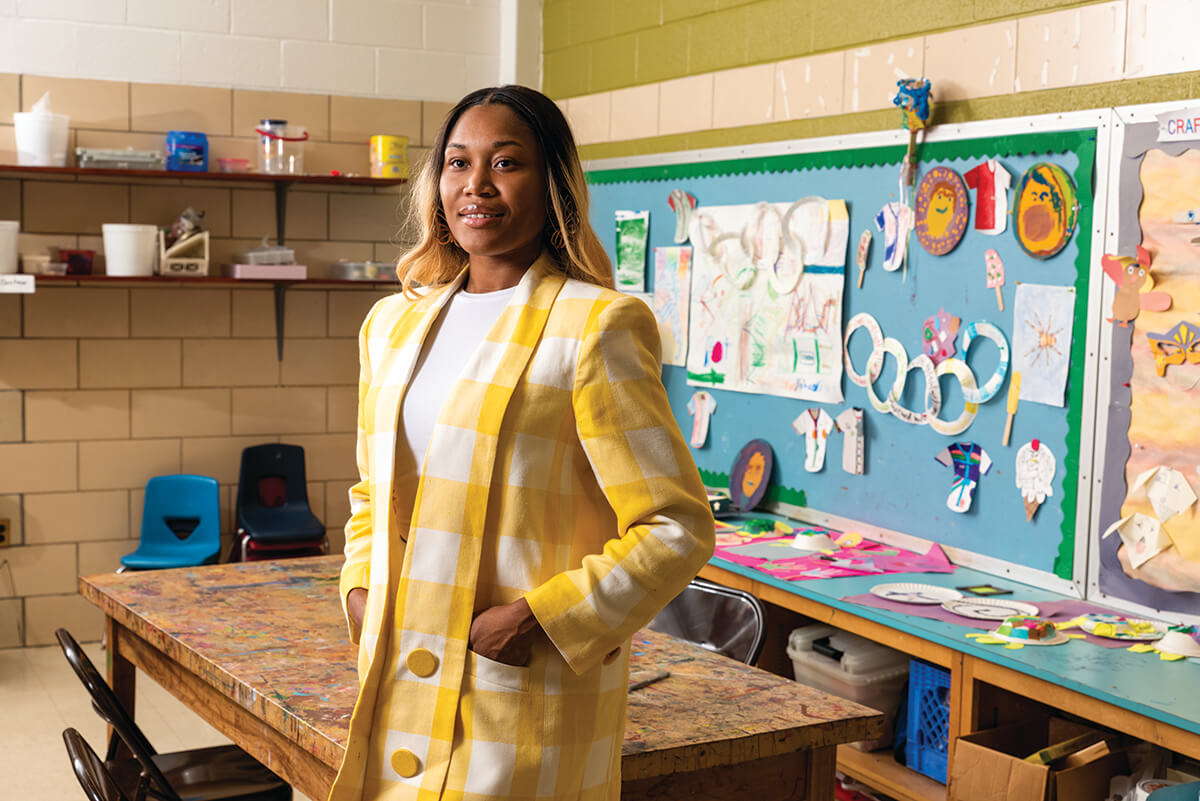Education & Family
Briauna Wills Uses Mentorship to Help Girls Grow Into “Young Queens”
With her after-school programs, the founder of Young Queens in Training works with dozens of young women to address self-esteem, health and wellness, and financial management, among other vital things youth need to be successful.

When Briauna Wills watched a fight between female students and a cafeteria worker on the local news, the expectant mother saw a need and knew she had to do something immediately.
“After seeing that fight on the news, I knew there were missing links to accessibility and resources for students,” she recalls.
That’s when the now-28-year-old mother created Young Queens in Training, an after-school program that provides life skills and mentorship to girls ages 8 to 18. For Wills, it’s important for young girls to have a safe space with resources to complement what may be missing at home.
“This program was birthed from necessity,” she says. “I thought about my daughter having to be exposed to the same kind of barriers that I had to go through as a student in Baltimore City.”
Wills grew up in Northeast Baltimore and attended the Baltimore Freedom Academy for high school, which gave her firsthand knowledge of the many social barriers that she addresses with her programming.
Since 2018, Young Queens in Training has served hundreds of young girls from across the city. Through a partnership with Baltimore City Department of Recreation and Parks, the program is currently in Herring Run, Woodholme, and Roosevelt Recreation Centers.
Each week, Wills works with dozens of young women to address self-esteem, health and wellness, and financial management, among other vital things youth need to be successful.
The work isn’t without its challenges. Like so many other nonprofit organizations, the COVID-19 pandemic caused the program to pivot to a virtual model that became quite challenging for participants, who relied on the in-person sessions to maintain stability and support.
Many of the girls come from low- to no-income homes without access to adequate supermarkets or the necessary in-home support that the program provides for them weekly.
“Schools are resources. Recreation centers are resources. It’s where they get additional love that they don’t get at home,” she explains.
Although some fundraising initiatives had to be halted, she did whatever was necessary to keep the girls in her program engaged. As things return to normal, Wills plans to introduce a vocational training course over the summer, where girls will be mentored or apprenticed by a local woman entrepreneur.
In the future, she hopes to raise enough funds to get a space of her own.
“Our goal is to be a vocational training resource. I hope that will open a door to partner with other programs in the city.”